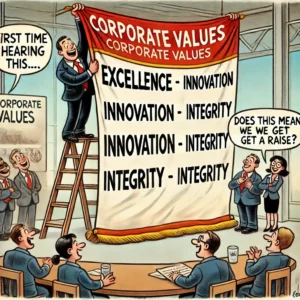
Seasonal Sales Strategy: Make the Most of Spring
Spring is a strategic time to boost your business. Discover how to align your sales efforts with seasonal cycles and turn the transition into a growth driver.
By Jean-Charles Spanelis – 01/03/2024
Updated by Nadia Bulcourt on 04/29/2024
The ability to generate sales, develop strong customer relationships and seize market opportunities are fundamental pillars of a successful sales department. At Finelis, we understand the crucial importance of this department in today’s sales landscape. That’s why Jean-Charles Spanelis, CEO of Finelis, is going to discuss the 7 essential capabilities for a successful sales department.
Finelis is more than just a coaching and business outsourcing company. We are partners committed to our customers’ success. With recognized expertise in optimizing sales performance, we are determined to support companies in their quest for a high-performance, agile sales department.
Why call my company Finelis? Finelis comes from the word “finance” and from the last syllable of my name, Spanelis.
It’s a qualitative sales outsourcing company for customers who have gaps in their sales and marketing, and who want to choose concrete actions and services to fill these gaps.
So, it’s Sales As a Service.
With 15 years’ experience on my own account, I’ve worked in many different environments. I think we’re up to 17 countries in all. We work in French, English, and Spanish, mainly for customers in technology, FinTech, Red Tech and InsurTech.
Lately, we’ve also integrated a PropTech company. We’re trying to penetrate the biotech market, but we’ve had mixed success, because it’s not easy. People don’t know us, so it’s not easy now.
However, we are positioned in several sectors, in many different countries, in outsourced sales and marketing.
What do you think are the seven essential capabilities of a sales department? It’s a huge debate. If I had to give you just one, which would it be? What would be the one essential capability of a sales department that’s active, obviously, but that also performs well?
When I say performance, I mean overall performance over the entire sales cycle. It doesn’t just mean arriving at the end at closing time, because you’re working on a product that’s in high demand and so you just must close, make a quote, and get a customer to sign. That’s fine, it’s not complicated.
What we’re talking about here is the entire sales cycle for a company that sometimes has a limited number of sales/marketing staff, and is competing against companies 10, 100 or even 1,000 times their size. We’re talking about this type of company.
At the heart of any successful sales department lies the ability to act. This is the ability to transform sales strategies into tangible results, to mobilize sales teams towards clear objectives, and to proactively seize market opportunities. At Finelis, we emphasize action as the driving force behind sales success.
If you have salespeople who don’t have this capacity for action, you’re dead. You’re just dead. What does “capacity for action” mean in concrete terms? I’ve listed seven of them. It may sound like a lot, but it’s not.
If you can think of any others that I haven’t listed, I’d be very interested in discussing them with you. Here are the seven I’ve identified.
For me, the ability to identify growth opportunities is crucial for any sales department that wants to be active and successful.
This involves constant market analysis, the detection of emerging trends and a thorough understanding of the needs and desires of potential customers. To achieve this, it is essential to develop a culture of strategic intelligence, exploiting market research tools and encouraging transparent communication within the team.
In addition, the use of techniques such as SWOT analysis (strengths, weaknesses, opportunities, and threats) can help prioritize opportunities and develop appropriate strategies to capitalize on them. By integrating this capability into your sales department, you can proactively position your company and maintain a sustainable competitive advantage.
You need to coordinate internal and external partners when dealing with a prospect: consulting firm, integration company, etc.
Internally, this means ensuring harmonious collaboration between different functional teams such as sales, marketing and customer service. This can be achieved by setting up clear communication and information-sharing processes, encouraging cross-functionality and fostering a team culture.
Externally, coordination also extends to business partners, suppliers, and customers. It’s crucial to develop strong relationships with these stakeholders, understand their needs and expectations, and work together to create added value.
By integrating this coordination capability into your sales department, you can strengthen your team’s cohesion and efficiency, while fostering lasting relationships with your business partners.
The ability to structure is a key element in ensuring operational efficiency and consistency within a sales department. This involves establishing clear processes and well-defined systems for managing sales, marketing, and customer service activities.
Establishing solid organizational frameworks clarifies responsibilities, optimizes workflows, and fosters team collaboration. What’s more, a well-thought-out structure can facilitate resource management, budget allocation and strategic decision-making.
In this way, you create an environment conducive to long-term productivity and performance.
The ability to effectively mobilize internal and external teams is a key factor in the success of a sales department. This requires not only motivating and inspiring team members, but also providing them with the resources and support they need to achieve their goals.
To mobilize teams, it’s essential to create a positive and stimulating working environment, define clear and achievable objectives, and encourage collaboration and the sharing of best practices. What’s more, recognizing and rewarding outstanding performance can help keep team members motivated and committed.
By mobilizing your teams, you can strengthen unity and cohesion within them while maximizing their potential for success.
We’re going to talk about the ability to measure: ROI, etc. What are your marketing and sales objectives? What is the ROI of your customers? Prospects aren’t going to listen to you if you don’t demonstrate in less than 20 minutes that your solution is going to save them time and/or money. Or better yet, both.
This means defining relevant key performance indicators (KPIs) to monitor and evaluate results, such as sales, conversion rate, customer acquisition cost and so on. And then, using data analysis tools and customer relationship management (CRM) software, it’s possible to collect, organize and analyze sales data to identify trends, opportunities, and challenges.
In addition, regular evaluation processes enable you to detect strengths and weaknesses and adjust strategies accordingly. This improves decision-making, optimizes performance, and maximizes the return on investment (ROI) of your sales efforts.
The ability to adapt. It’s obvious, isn’t it?
It means being responsive to market changes, technological developments, and new consumer trends. To adapt successfully, it’s important to cultivate a culture of innovation and agility within the team, encouraging creativity, flexibility, and openness to change. This is one way of ensuring your company’s long-term viability.
The ability to challenge is an essential quality for stimulating innovation and fostering growth within a sales department. Of course, you’ll need to challenge the status quo, explore new ideas and defy established conventions to push the boundaries of performance.
To cultivate this ability, it’s important to create an environment where risk-taking is encouraged and failure is seen as a learning opportunity. What’s more, encouraging a diversity of perspectives and interdisciplinary collaboration can stimulate creativity and foster innovation.
If your sales and marketing department has all this, then you’re on the right track. How to sum it up? Your teams have an entrepreneurial mindset, they’re resilient and they’re going to move, they’re going to move forward. If you’ve got all that, don’t worry about 2024, it should go well!
Now, put these capabilities into action and make your sales department an engine of growth and success for your company. Realize your full commercial potential and thrive in an ever-changing marketplace.

Spring is a strategic time to boost your business. Discover how to align your sales efforts with seasonal cycles and turn the transition into a growth driver.

Attending a trade show is a powerful business opportunity. Discover how to maximize your impact with strong preparation, engaging techniques, and structured follow-ups.

Expanding internationally means adapting your company’s DNA without losing its essence. Learn how to structure your offer, refine your message, and build strong partnerships for success.

Are corporate values truly a performance driver, or just a marketing argument? When aligned with a coherent sales strategy, they become a powerful lever for growth and customer loyalty. Discover how to structure an effective approach to bring meaning to your values and turn them into a real asset.

Discover how to reinvent your sales strategies after Covid with a hybrid approach that blends tradition and digitalization. Learn how to outsource effectively, adopt a customer-centric approach, and develop essential sales skills to maximize your performance.
Innovation is a key lever for turning challenges into opportunities. With logistics solutions like KWiiD and Hipli, your business can reduce costs, enhance environmental commitment, and maximize commercial performance.